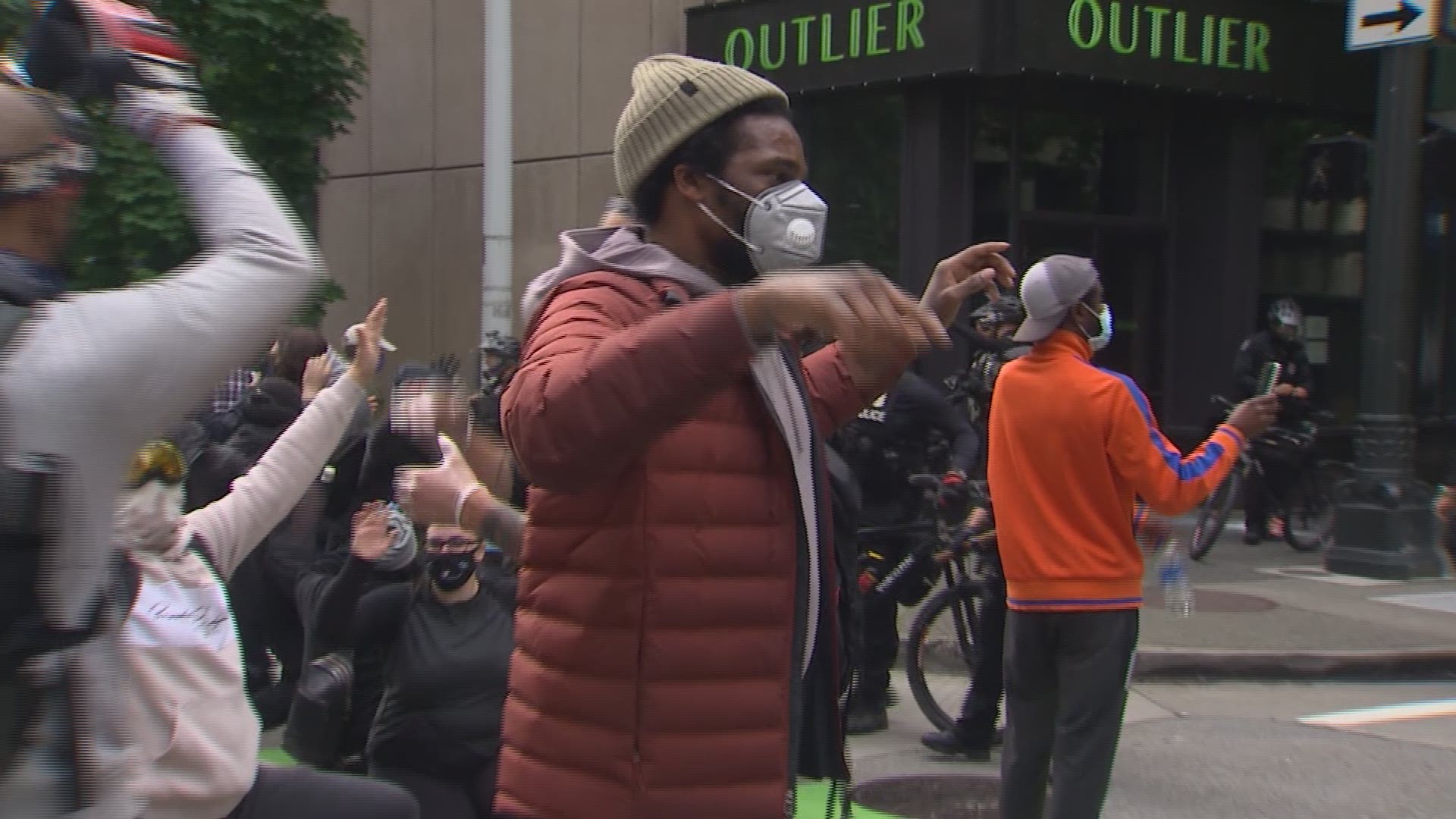SEATTLE — At one point on Saturday, the Seattle Police Department estimated that 10,000 people took part in demonstrations across the city, protesting police brutality and the death of George Floyd, who died in Minneapolis police custody.
One big question has come out as people gathered to protest injustice in the middle of the pandemic: Is COVID-19 going to get worse?
Even though most protestors appeared to be wearing face masks, maintaining a six-foot “social distance” in a crowd seemed impossible to maintain.
But it’s not as simple of protest crowds being the only threat against public health.
“I think demonstrations against racism are in service of public health,” said Dr. Olivia Kates, who is not only an infectious disease doctor but a bioethicist with the University of Washington.
Kates points to much of what’s now a familiar part of the COVID-19 crisis, where a disproportionate impact of the disease is falling on black and brown people, along with the deaths.
“Black and brown people are disproportionately affected by COVID-19 as a consequence of racism and systemic injustice,” she said. “That leads to crowded living situations, and a high proportion of people of color serving in essential roles. That doesn’t mean there are not ways to reduce the chance of infection. I would also suggest protesting in a stable group of close contacts rather than intermingling with large numbers of different people.”
“We understand difficult choices that people were faced with this past weekend,” states the Public Insider Blog from the Seattle King County Public Health. “Many in our community grappled with attending protests to stand up against these injustices while also wanting to keep our community safe from further spread of COVID-19.”
But the blog also has practical advice, which includes anyone who attended the gatherings to monitor their health for 14 days.
“Anyone who develops symptoms of COVID-19 should be tested right away, whether they’ve been at a protest or not.”
Dr. Jeffrey Duchin, the Public Health officer for Seattle King County Public Health, responded to KING 5 questions via email about the spread.
“Our most recent prevalence estimates from the Institute for Disease Modeling and about two weeks before the protests ranged from 8-44 active infections per 10,000 people in the general population across all ages, geographic areas and risk categories in King County,” he wrote. “It is not possible to predict precisely what the risk would be at a protest march where the participants don’t resemble the underlying population or necessarily come from King County.”
“COVID spreads when people gather together with people,” said Tacoma Pierce County Public Health spokeswoman Edie Jeffers.
Jeffers said an increase in infections could affect reopening plans underway in Pierce County. Pierce and Snohomish and both trying to get to Phase 2.
King County is trying to get to a modified Phase 1 opening. Executive Dow Constantine said the application to reach that stage will go ahead, but, “We will continue to closely monitor disease trends in the coming weeks to determine whether we can continue to move forward safely with reopening.”

